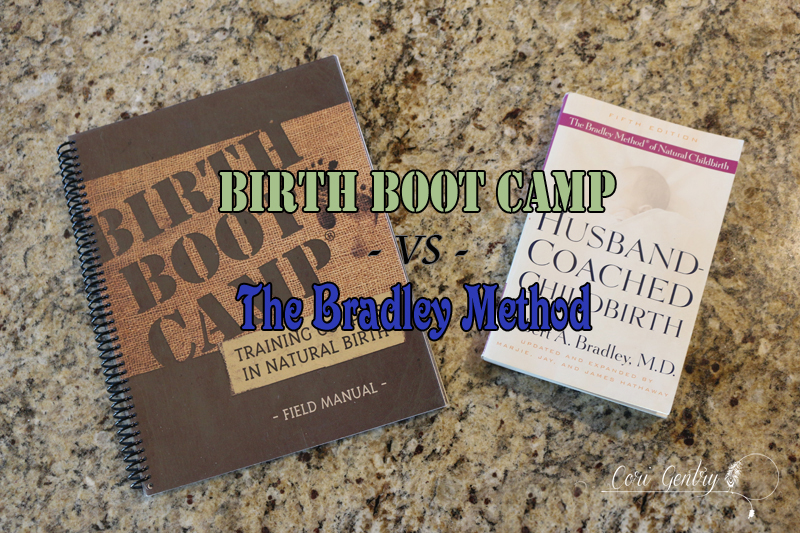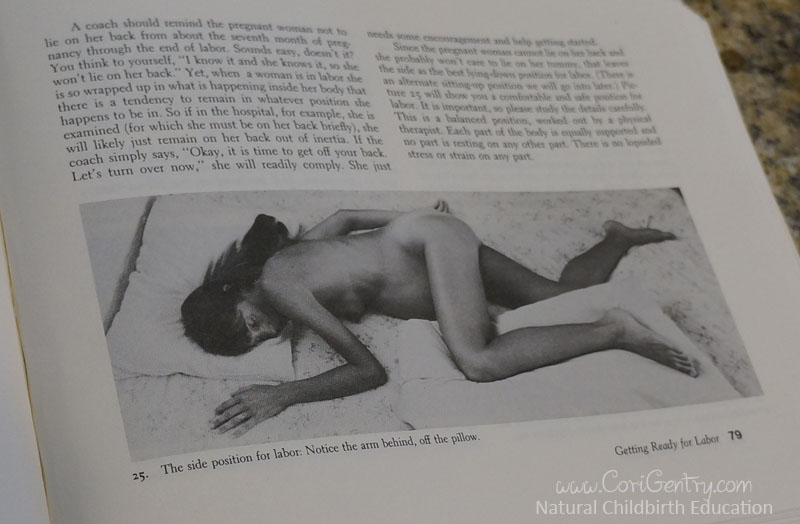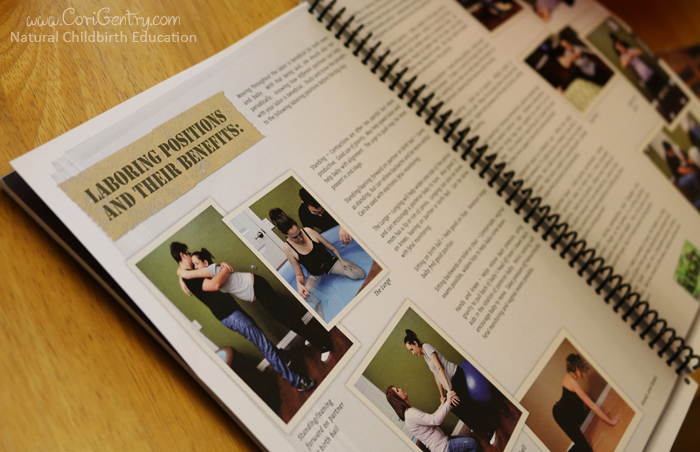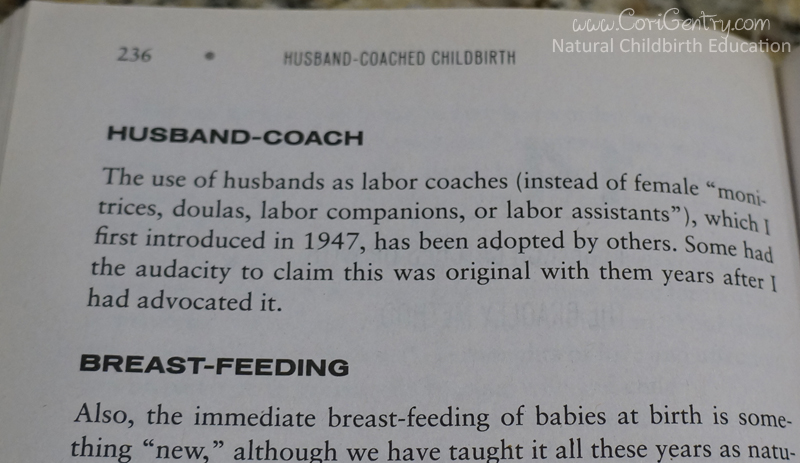|
The curriculum I teach is Birth Boot Camp, the tagline on the logo is "Training Couples in Natural Birth." I thought I might share why these classes aren't only for couples planning a natural birth and clear up some possible misconceptions about this curriculum and who may benefit from it.
Natural births make up a very small minority of births in the United States. Couples who desire one deserve to take a class specially geared towards helping them achieve that goal. It's no small feat, not because natural birth is so difficult (even though it certainly can be) but because in our culture women women know little about the normal birth process and have many misconceptions about birth in general. So, that's why there is a class designed for couples desiring a natural birth. However, what about the couple who does not desire or cannot have a natural birth... what do they deserve? They deserve absolutely everything that a couple desiring a natural birth deserves. During my time as a natural childbirth educator I have been approached by several couples saying "We already know we will have to have an epidural for medical reasons," or "We really don't desire a natural birth, but we wan't to avoid a cesarean," or "We are undecided, we want to keep our options open," and they wonder if my class is right for them. Not only have I told them that it was, but I've taught these couples, and they have loved their births. If I teach a natural childbirth curriculum, how could the same information appeal to couples with different plans? No Birth is Shamed, Ever I vilify no intervention and there is no such thing as a failed birth... which I remind my classes of often. I am very honest about the risks of every intervention. We role play getting every aspect of an epidural set up (the IV, blood pressure cuff, oximeter, bladder catheter, etc) and discuss how these interventions can effect birth... but I'm very aware that even if everyone in the room is planning a natural birth, someone may need or choose medications in labor so there is no doom and gloom in this discussion. A couple planning a medicated birth should feel very comfortable. This information helps them to know what to expect so they are truly making an informed decision. No matter what a couple is planning, we thoroughly discuss how to minimize any negative effects of any intervention, how avoid additional unwanted interventions, or how to avoid an unwanted cesarean birth. Interventions are a Fraction of Class I've read natural childbirth books where I feel like their main approach is to try to scare people into a natural birth by mainly focusing on risks of interventions. That is valid information, but that's not the focus of this class. A couple planning a medicated birth will still need information on keeping their pregnancy low risk with nutrition and physical fitness, they will still need tools to help them in labor before they get whatever medical pain relief they desire (and they will learn those medication options), they will still have to push out their baby and decide how they want to do that too! They still have lots of decisions to make about their birth place, what newborn procedures they want done after the birth (there are lots of them), how to breastfeed their baby, bringing baby home, establishing sleeping arrangements. And we don't just mention all this in the midst of a long lecture, we dedicate a lot of time, activities, sometimes whole classes to these topics so every couple feels very prepared. I don't want anyone to feel blindsided at their birth or postpartum! Even a couple planning a cesarean birth, or that finds out they will need a cesarean during pregnancy, will gain a wealth of valuable knowledge to prepare them for their birth and life with their baby. A Positive Birth I don't want couples to believe that only a natural birth is a good birth. I don't believe that. I've birthed naturally and with medications and my most powerful birth was actually a medicated birth. I think it was a great birth and I'm proud of it. What I desire for all my couples is that they have a positive birth that they feel good about. If a couple desires a natural birth, I will do everything I can to help them reach that goal. I will also prepare them for departures in their birth plan in a way that doesn't undermine their ultimate goal. Not everyone who plans a natural birth will have one, so helping each couple learn how they can have a positive medicated birth or a positive cesarean birth is really important to me. For a couple who desires a medicated birth, medications might take away the sensations of birth (also might not!) but may not help a mom with all the emotional aspects of birth. Fears of either the birth process or aspects of the chosen interventions might make even a birth with excellent pain control very unpleasant. A positive natural birth, a positive medicated birth, and a positive cesarean birth all deserve thought and careful preparations.
0 Comments
It's not uncommon for a couple to find themselves deciding between Birth Boot Camp and Bradley Method classes. Both classes are about the same length, Birth Boot Camp classes run 10 weeks (25 hours) and Bradley classes run 12 weeks (24 hours). Both classes are in the same price bracket: $250-350. Both classes advocate natural childbirth and seem to cover many of the same topics. Considering the similarities, if I was planning to invest in a birth class I'd want to talk to someone with experience with both, so I decided to put together this guide. The Bradley Method In a method class a specific approach to birth is taught and encouraged. The primary coping technique taught by Bradley is sleep-simulation, a form of deep relaxation where a mother quietly lies on her side and practices deep breathing. She should look asleep to the people around her and she should be laboring in bed: "After good, firm, regular uterine contractions are established, when she wishes to go to bed, escort her back to the labor room." (Husband-Coached Childbirth, p67) Dr. Bradley developed his method in 1947 by observing laboring animals, and women who labored confined to beds, the only way women labored in hospitals at that time. If we go to countries where laboring in a hospital bed is not the cultural norm, women often times labor and even birth upright, though still deeply relaxed. The premise of Dr. Bradley's method is that the woman will be expected to labor quietly in a hospital bed, his cultural norm as a 1950's obstetrician. We now have better information. Lying down in labor can cause malpositioned babies, increased pain, and a longer labor. Furthermore, a naturally laboring woman often times isn't quiet. Low rhythmic moaning can be very comforting and is a sign of a mother who is coping well in labor. Encouraging women to birth using a method means that some couples will be left stranded at their birth if the method doesn't work for them. Birth Boot Camp is Not a Method Birth Boot Camp does not teach that there is a right way to birth. Birth Boot Camp encourages women to listen to their bodies while in labor. That means every woman will move, vocalize, and birth their baby in a way that is most comfortable to them. Couples learn to achieve deep relaxation in a variety of positions, what kinds of vocalizations help mom open, and how to listen to the different sensations of labor and birth. Once you are in labor, you will know what is and is not working for you! Birth Boot Camp provides options, pros and cons, and techniques, but a woman's needs in labor will be unique to her. Husband-Coached Childbirth In addition to sleep-simulation as the primary method of labor, the other foundation of the Bradley Method is husband-coached childbirth. The organization that trains Bradley instructors is the American Academy of Husband-Coached Childbirth (AAHCC) and the name of Dr. Bradley's book is Husband-Coached Childbirth. Dr. Bradley advocated "The use of husbands as labor coaches (instead of female 'monitrices, doulas, labor companions, or labor assistants')." (Husband-Coached Childbirth, p236) Making someone a coach implies they have played and are experts in the game. It's very unlikely that Dad is an expert in natural birth, and even if he is, his expertise will likely be useless in the height of such an emotional event. Dr. Sears does a wonderful job of articulating what many dads have felt: "Birth reformers came up with the job title 'coach' as a way to get fathers into the delivery room, thinking that most men would identify with the word because they understood sports. Unlike sports, however, few men understand birth and no man has ever labored out a baby. My first experience as a birth coach came nearly twenty years ago. At the height of the game of labor I totally forgot what I had learned at practice and did what I naturally do best - love my wife. Once I dropped the role of coach and took on the role of lover, the whole process became easier for me." (The Birth Book, p57) Ultimately, labor does not need to be coached. Let mom birth her baby the way nature already has designed and let dad love and support her. As for the female labor support people Bradley mentions, from the beginning of time up until 100 years ago, laboring women were attended to by knowledgeable, sympathetic women. Women, whether a midwife, or mother, or sister, who had been there and understood. While labor doesn't need a coach, mom and dad can benefit from a knowledgeable, caring guide. That can come in the form a doula. A doula has received extensive training in encouraging naturally birthing mothers and may have attended dozens of natural births. She will not interfere with mom and dad, but as an expert in normal birth and as an objective member of the birth team she may be able to make gentle suggestions and give needed encouragement.
Birth Boot Camp Dads Don't Coach The relief in men's faces when they are told they don't have to be the "birth coach" is priceless, someday I'll have to set up a hidden camera. Dads have an irreplaceable role in the birth of their child, and that's to love mom. He knows her better than anyone else, he may be able to anticipate her needs before she even knows them herself. Birth Boot Camp helps dad apply what he already knows about his partner to comforting her physically and emotionally in labor. Mom and dad are encouraged to let go of the birth fears perpetuated by our culture, and both mom AND dad will gain the knowledge necessary to be relaxed and comfortable with the birth process. Birth Boot Camp Training and Transparency Your Birth Boot Camp instructor completed on average, 9 months worth of study to receive her certification and she must add to her education every year in order to remain certified. The required reading includes 13 books and films. You can see the complete list of requirements here. Birth Boot Camp has also vowed to remain transparent and publishes their unmedicated birth and cesarean rates every year so couples can see that Birth Boot Camp has a measurable impact in helping couples achieve a natural birth today. The Bradley Method Training and Transparency Bradley teachers have some of the same requirements as Birth Boot Camp instructors, like having birthed naturally and breastfed their babies, but the amount of study required is significantly less, only 4 books, the two I have cited above and two others. Even with revisions, the information in the Bradley publications are dated. Being old does not make a book bad of course, some of my favorite books are super old, but having outdated information is a disservice to teachers and couples. The Bradley Method boasts an 86% success rate in helping couples achieve an unmedicated, spontaneous birth. This stat has not changed for as long as I can remember. Not only are we not sure how the AAHCC came by that number (Over which years? Were all mothers included or were some excluded for various reasons?), but couples today have no idea if the Bradley Method has continued to be effective as epidural and c-section rates rise and hospital policies and midwifery laws change. Bradley Method Today When deciding whether to certify as a Bradley Method or Birth Boot Camp teacher I called the AAHCC to find out how materials were updated. I had read the required coursework and was concerned about the outdated suggestions made. I was told that I had the most revised copies and that "birth hasn't changed, so there isn't much to update." I understand that perspective, the uterus of the modern woman works just as effectively as they did 1000 years ago. Woven deep into our DNA are all the same instincts our ancestors had and babies are still eager and active participants in their births. However, we don't birth in timeless, culture-less vacuums. Birth has changed! In the 1940's fathers in the delivery room was truly innovative, but today it's standard policy, barely worth mentioning in class. In 1970 only 5% of births were by cesarean section, today it's 33%. Major shifts in the medical system and in our culture led to that change. In the 1990's natural birth gained more support, hospitals offered mothers comforts from home, and after a rise in c-sections, VBAC's (vaginal birth after cesarean) were suddenly being encouraged! The future looked bright! Today most hospitals have established VBAC bans, and couples face obstacles to natural birth that Dr. Bradley could have never foreseen in his lifetime, which is no fault of his own! Although Bradley teachers could research and update the class curriculum and videos on their own, they are strongly discouraged to by the AAHCC. We owe Dr. Bradley our deepest gratitude for seeing that women could in fact birth naturally and that fathers deserved to be apart of birth. Are women just as capable of birthing naturally today, absolutely! But a couple deserves the most current information when preparing for such an important life event. Were women shaved and given enemas in the 1970's, absolutely. Do you need to embarrass yourself by mentioning it on your birth plan today? From personal experience... no, no you don't. I really hope you found this helpful in showing some basic differences in the philosophies and content of two seemingly similar natural childbirth classes. |
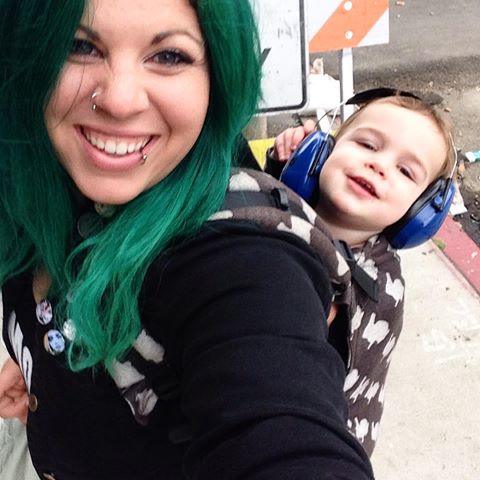 I'm a childbirth educator, birth doula, and birth activist with 4 little boys and occasionally enough time to write. I'm a childbirth educator, birth doula, and birth activist with 4 little boys and occasionally enough time to write.
EventsNatural Birth Series
Sept 28 – Nov 15 Carmel, 6:30–9pm Register Infant Sleep for Expecting & New Parents September 28th 6:30pm - 9:00pm Register Gentle Cesarean: Planning & Recovery September 30th Toro Park, 3-6:30pm Register Natural Birth Refresher October 15th Salinas, 1– 4pm Register Preconception & Early Pregnancy Class October 22nd Salinas, 1– 4pm Register Sibling Prep for Parents & Kids November 4th & 5th Toro Park, 2:-4pm Register Fall Home & Birth Center Birth Series Nov 7 – Dec 12 Salinas 7pm–9pm Register VBAC Class November 12th Salinas, 1–4pm Register Natural Birth Series Nov 29th – Jan 17th Salinas 6:30–9pm Register Archives
January 2017
Categories
All
|

